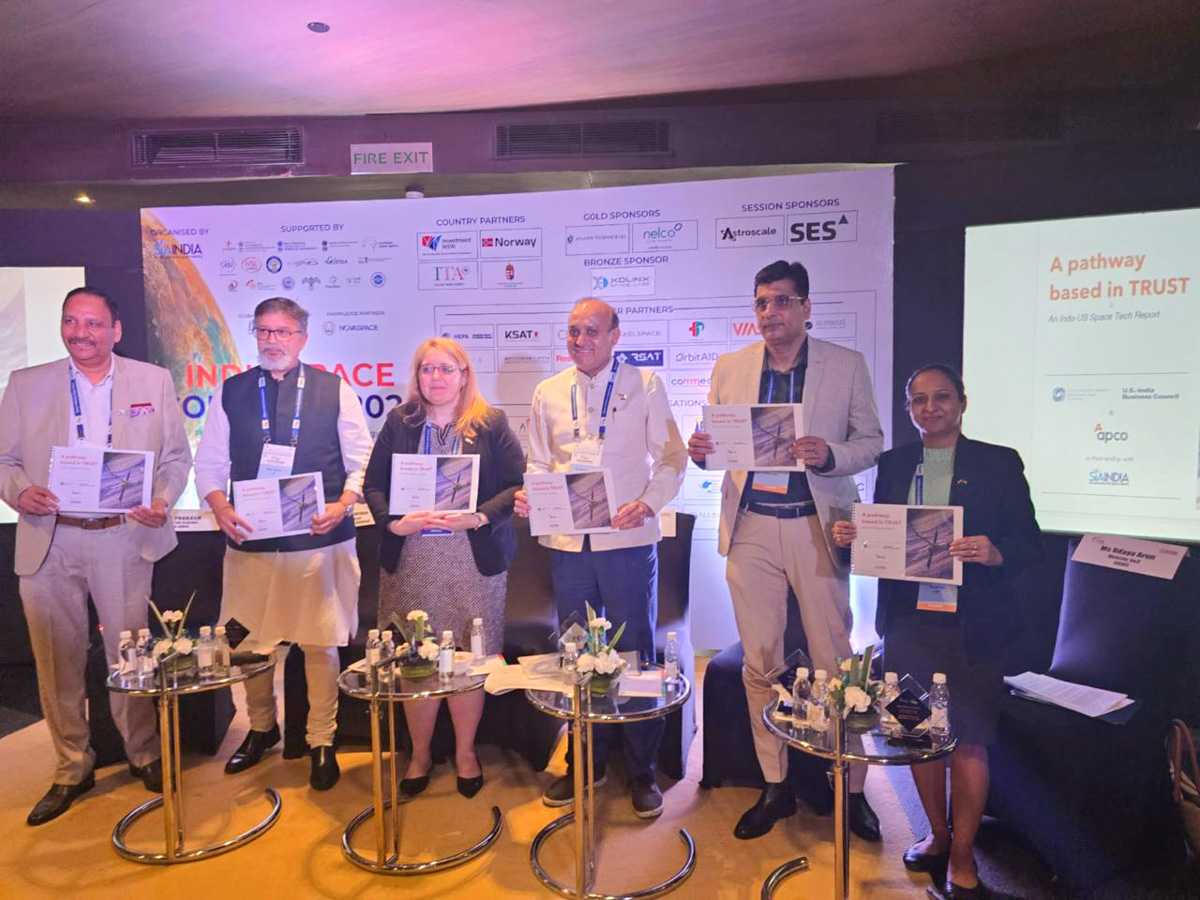
TRUST in Space: India-U.S. Collaboration Set to Grow the Global Space Economy Together
June 26, 2025
A burgeoning partnership between India and the United States, built on a foundation of trust and shared democratic values, holds tremendous potential for mutual benefit. It is a path which highlights the global shift in the space sector from a purely strategic, government-led domain to a democratized, commercial-driven economy.
India’s space ecosystem is rapidly maturing, marked by the government efforts including the New Space Policy 2023, which liberalized foreign direct investment (FDI) and spurred the growth of startups—from just one in 2014 to over 200 now—in areas like launch vehicles, satellite manufacturing and space situational awareness.
The APCO-USIBC-SIAIndia report titled “A pathway based in TRUST—An Indo-US Space Tech Report,” unveiled at a roundtable held at the India Space Congress 2025 in New Delhi, captures the challenges, opportunities and recommendations for ensuring speedy growth in the sector. The U.S.-India TRUST (Transforming the Relationship Utilizing Strategic Technology) initiative launched in February this year includes space as one of the areas to catalyze government-to-government, academia and private sector collaboration.
The significant opportunities for collaboration in the sector lie in key segments: satellite communications (Satcom), satellite and rocket manufacturing, and geospatial services. It notes that while joint initiatives like the NISAR mission and the Artemis Accords signal a strong partnership, progress is hampered by regulatory hurdles, export controls, procedural delays in FDI approvals and the lack of a cohesive legal framework.
Space is a bustling commercial hub today. The collaboration between India and the United States is poised to redefine the global space economy, moving from strategic competition to commercial cooperation built on a pathway of trust.
Despite the immense potential, the partnership faces significant headwinds.
To realize the promise of this collaboration, action is needed. Both governments should work on streamlining regulations, recognizing international certifications to reduce costs and creating clear, time-bound approval processes. By clearing these hurdles, India and the United States can unlock a new era of space exploration, one defined not by flags and footprints but by shared innovation, economic growth and the democratization of space for the benefit of all.